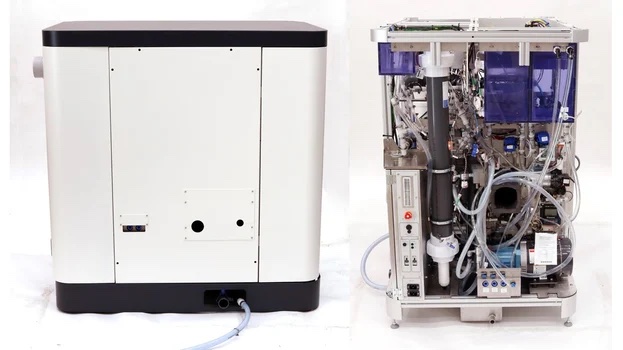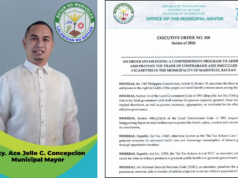Commercialization Follows Successful Collaboration with Georgia Tech and the Bill & Melinda Gates Foundation to Bring Technology to Pilot
LIXIL, maker of pioneering water and housing products, recently announced it has been named the first commercial license partner for Georgia Tech’s Generation 2 Reinvented Toilet (G2RT) Consortium’s technologies. The G2RT program had a global research team of 95 engineers, scientists, and industrial designers tasked with transforming traditional, infrastructure-dependent toilets into an appliance. LIXIL’s commercial license follows a four-year partnership with Georgia Tech, as well as ongoing collaboration with the Bill & Melinda Gates Foundation as part of the Foundation’s Reinvent the Toilet Challenge, initiated in 2011.
The G2RT itself is designed to operate independently of traditional infrastructure and provide an accessible, sustainable sanitation solution. Unlike conventional toilets that rely on sewer systems, septic tanks, cesspools, or latrine pits to dispose of waste, the G2RT is equipped with a self-contained processing unit that treats waste directly at the source. When the toilet is used, the liquid waste is purified and recycled for flushing, while the solid waste is subjected to high heat and pressure, eliminating pathogens and transforming it into safe, compostable, dry solids. This process prevents the contamination of water systems, thereby reducing the spread of diseases caused by fecal contamination and waterborne pathogens.
In addition to its public health benefits, reinvented toilets will ultimately offer significant cost savings in construction and installation. By removing the need to connect to sanitation grids or septic systems, this technology can be deployed without the need for extensive infrastructure development, enabling access to sanitation in communities where sewer infrastructure cannot reach.
“LIXIL’s purpose is to make better homes a reality for everyone, everywhere, and the reality is that billions globally lack access to basic safe water, sanitation, and hygiene. We believe innovations in decentralizing waste treatment for a low-cost, reliable solution will be key to accelerating access to safe water and sanitation,” said Erin McCusker, Senior Vice President, Leader, SATO and LIXIL Public Partners. “As an appliance-like solution, a ‘Reinvented Toilet’ helps remove barriers to sanitation access, and we’re energized by the idea of continuing to invest in R&D to develop the G2RT into a market-ready product and provide people with improved, flexible, and safe sanitation.”
Georgia Tech’s G2RT designs are standalone appliances that run on electricity, requiring no input water connection and no output sewage connection. In the development of the G2RT and in partnership with Georgia Tech, LIXIL acted as the commercial advisor, front-end designer, and manufacturer, delivering a total of 24 prototypes used for the laboratory and in-home tests across the United States, Europe, South Africa, India, and China. The prototypes were laboratory-tested in the United States and Europe, and then field-tested in people’s homes in South Africa and India. The scientific results suggest that a reinvented toilet product would be able to achieve international sanitation standards, promising a clean, safe, and dignified future for all. As the first commercial licensee, LIXIL will invest in further development to refine these technologies into products suitable for both public and private sector use.
“It has been an honor to partner with LIXIL and lead this global R&D collaboration aimed at turning an infrastructure into an appliance. Looking to the future, we recognize that while half the world needs a toilet, the other half needs a better version,” said Shannon Yee, a mechanical engineering professor at Georgia Tech who directs the G2RT consortium. “So next, our focus will pivot towards helping scale manufacturing of an accessible product, so that Reinvented Toilets can get to the people who need them the most.”
As recently as 2023, 3.5 billion people around the world lacked access to safely managed sanitation services, increasing the risk of diseases like cholera and dysentery. As part of the commercial license, LIXIL is committed to the Gates Foundation’s principle of “Global Access”, which ensures these innovations reach those most in need of access to safe sanitation. LIXIL Public Partners, the company’s public sector engagement and collaboration platform focused on delivering household solutions for water, sanitation, and hygiene, will lead the development and application of G2RT design concepts, including uses for emergency response, for public toilets, and in underserved communities lacking access to traditional sanitation solutions.
“The leadership of companies like LIXIL is vital to bringing new sanitation technologies to market at scale and increasing access to safe sanitation for all,” said Doulaye Kone, Interim Director of the Water, Sanitation & Hygiene Program at the Gates Foundation. “LIXIL’s expertise in designing and delivering products to meet diverse community needs will help ensure that these technologies reach the people that need them most, leading to improved health, productivity, and gender equality.”
To learn more, visit https://www.lixil.com/en/impact/.
About LIXIL
LIXIL (TSE Code 5938) makes pioneering water and housing products that solve every day, real-life challenges, making better homes a reality for everyone, everywhere. Drawing on our Japanese heritage, we create world-leading technology and innovate to make high-quality products that transform homes. But the LIXIL difference is how we do this: through meaningful design, an entrepreneurial spirit, a dedication to improving accessibility for all and responsible business growth. Our approach comes to life through industry leading brands, including INAX, GROHE, American Standard and TOSTEM. Approximately 55,000 colleagues operating in more than 150 countries are proud to make products that touch the lives of more than a billion people every day. Learn more at www.lixil.com.
About the Georgia Institute of Technology
The Georgia Institute of Technology, or Georgia Tech, is one of the top public research universities in the U.S., developing leaders who advance technology and improve the human condition. The Institute offers business, computing, design, engineering, liberal arts, and sciences degrees. Its more than 45,000 students, representing 50 states and more than 148 countries, study at the main campus in Atlanta, at campuses in France and China, and through distance and online learning. As a leading technological university, Georgia Tech is an engine of economic development for Georgia, the Southeast, and the nation, conducting more than $1 billion in research annually for government, industry, and society.





